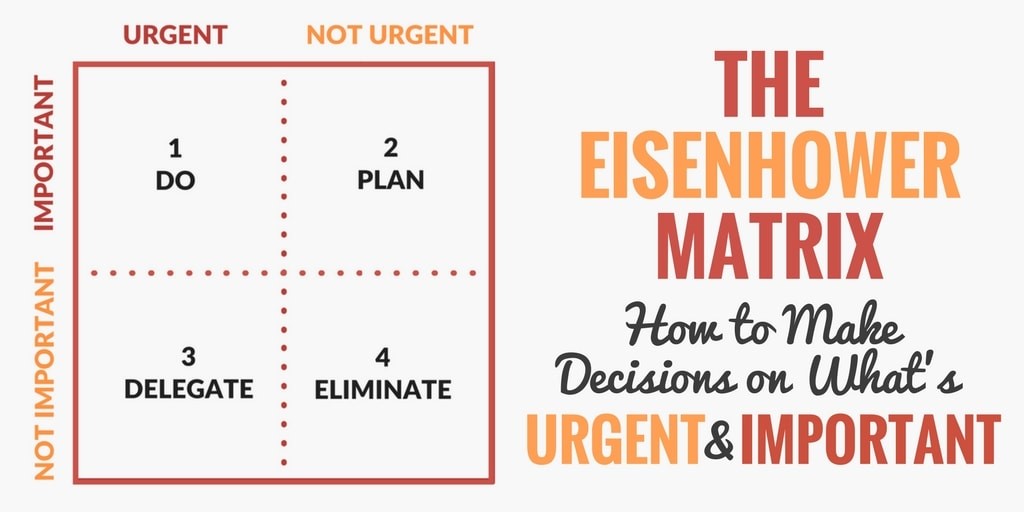Time Management – The Eisenhower Method
Dwight D. Eisenhower was the 34th President of the United States from 1953 until 1961. Before becoming President, he served as a general in the United States Army and as the Allied Forces Supreme Commander during World War II.
Eisenhower recognized that great time management means being effective as well as efficient. In other words, we must spend our time on things that are important and not just the ones that are urgent. He devised a system for managing his time and deciding his priorities which has become known as the Eisenhower Method which basically allowed him to distinguish between what was urgent and what were important tasks. He is quoted as saying:
“What is important is seldom urgent and what is urgent is seldom important.” Dwight D. Eisenhower
Most people spend a lot of their time managing “situations” and “crisis”. They react to other’s priorities which often results in them not addressing the most important priorities which can result in inefficiency and lack of meaningful productivity.
Dwight made tough decisions continuously about which of the many tasks he should focus on each day. He once indicated
“I have two kinds of problems, the urgent and the important. The urgent are not important, and the important are never urgent.”
A lot of things that take up mental energy, waste time, and rarely move you toward your goals can easily be eliminated if you apply the Eisenhower Principle. It’s a simple decision-making tool you can use, which is meant to help you question whether an action is really necessary.
How to use the Eisenhower Method
You can only benefit from the Eisenhower Method if you can commit yourself to making radical categorisation of your daily tasks. This Method requires that you group your tasks and activities into four priorities.
- Priority 1 tasks are both urgent and important. (Tasks you will do immediately).
- Priority 2 tasks are important but not urgent. (Tasks you will schedule to do later).
- Priority 3 tasks are urgent but not important. (Tasks you will delegate to someone else).
- Priority 4 tasks are neither urgent nor important. (Tasks that you will eliminate).

